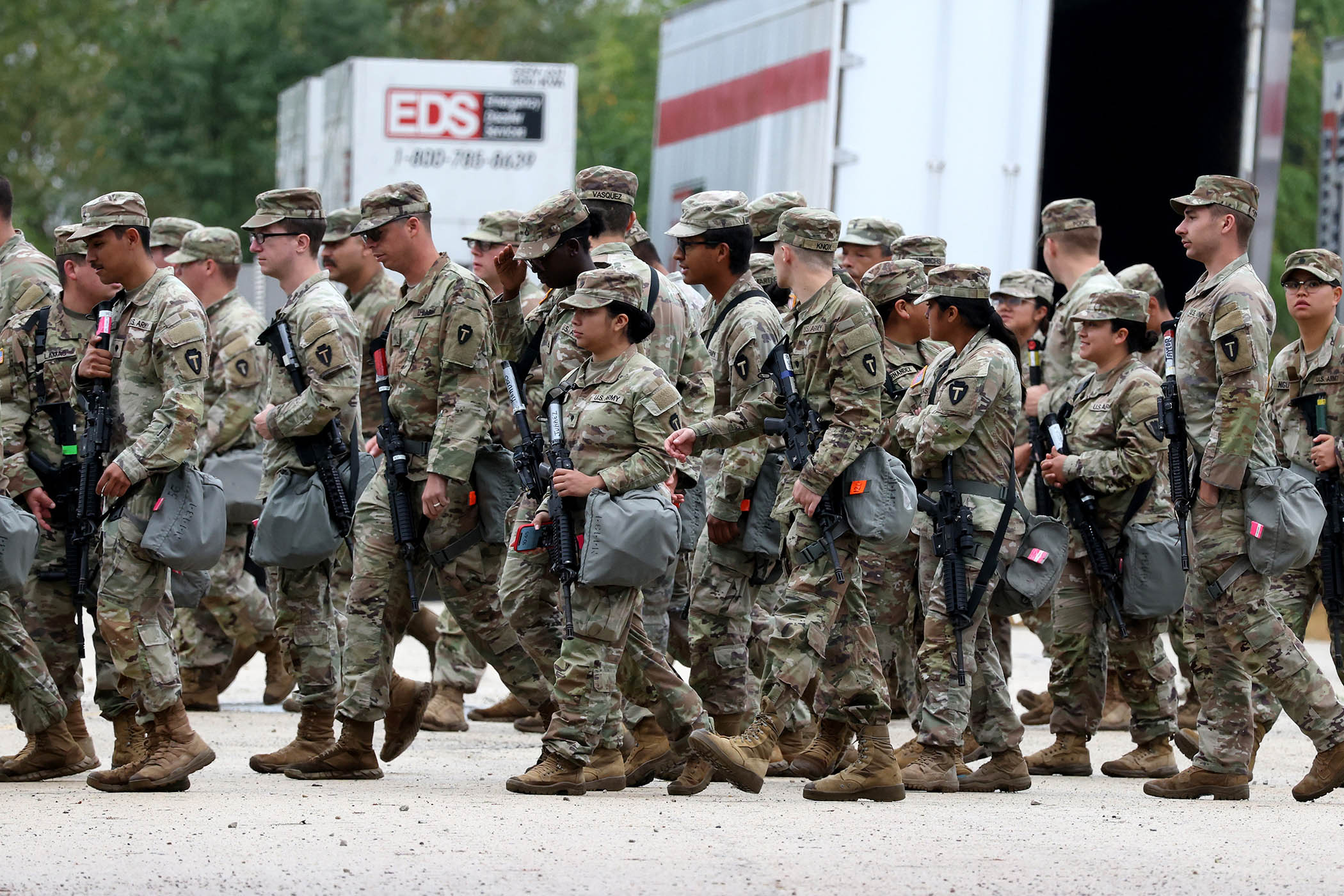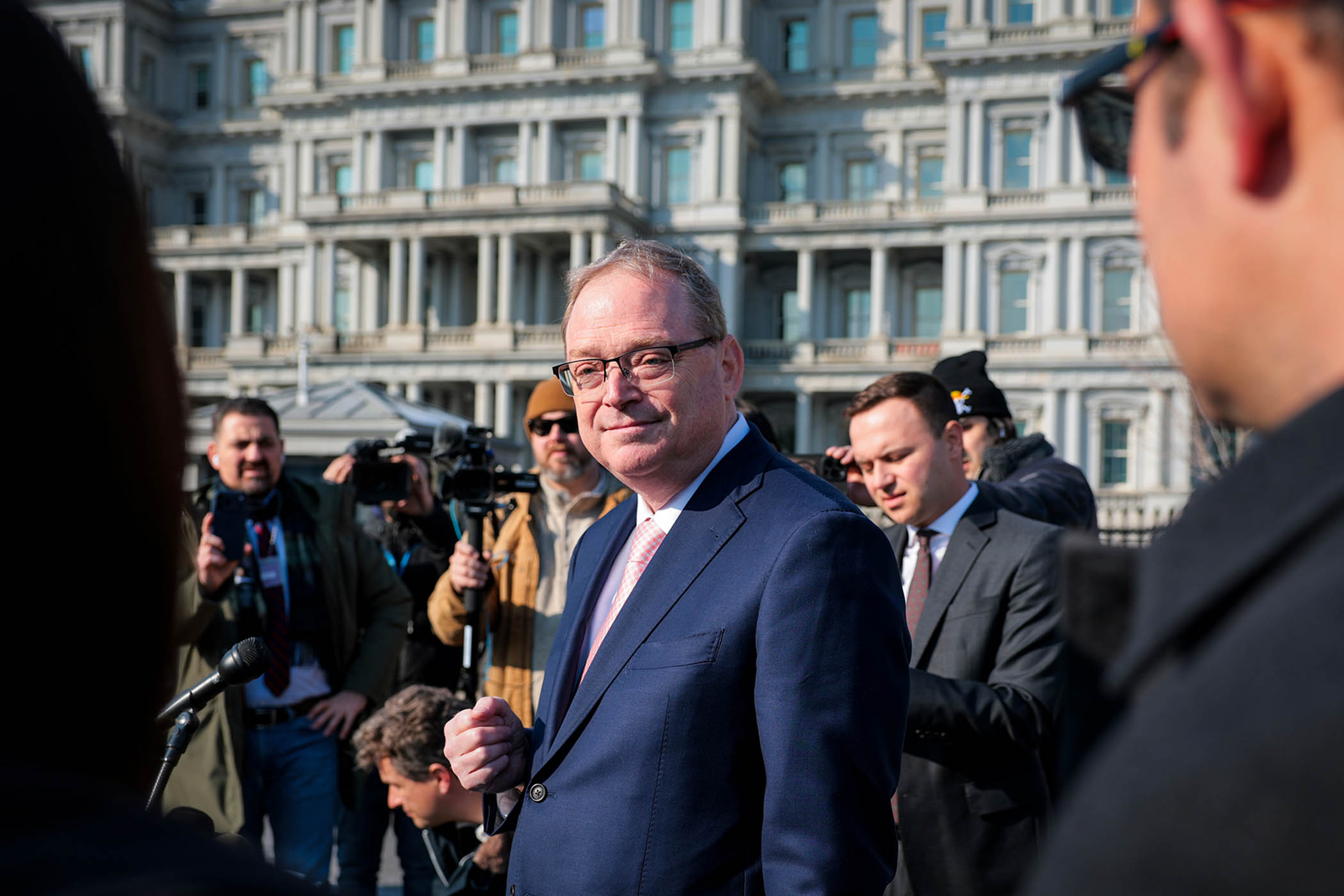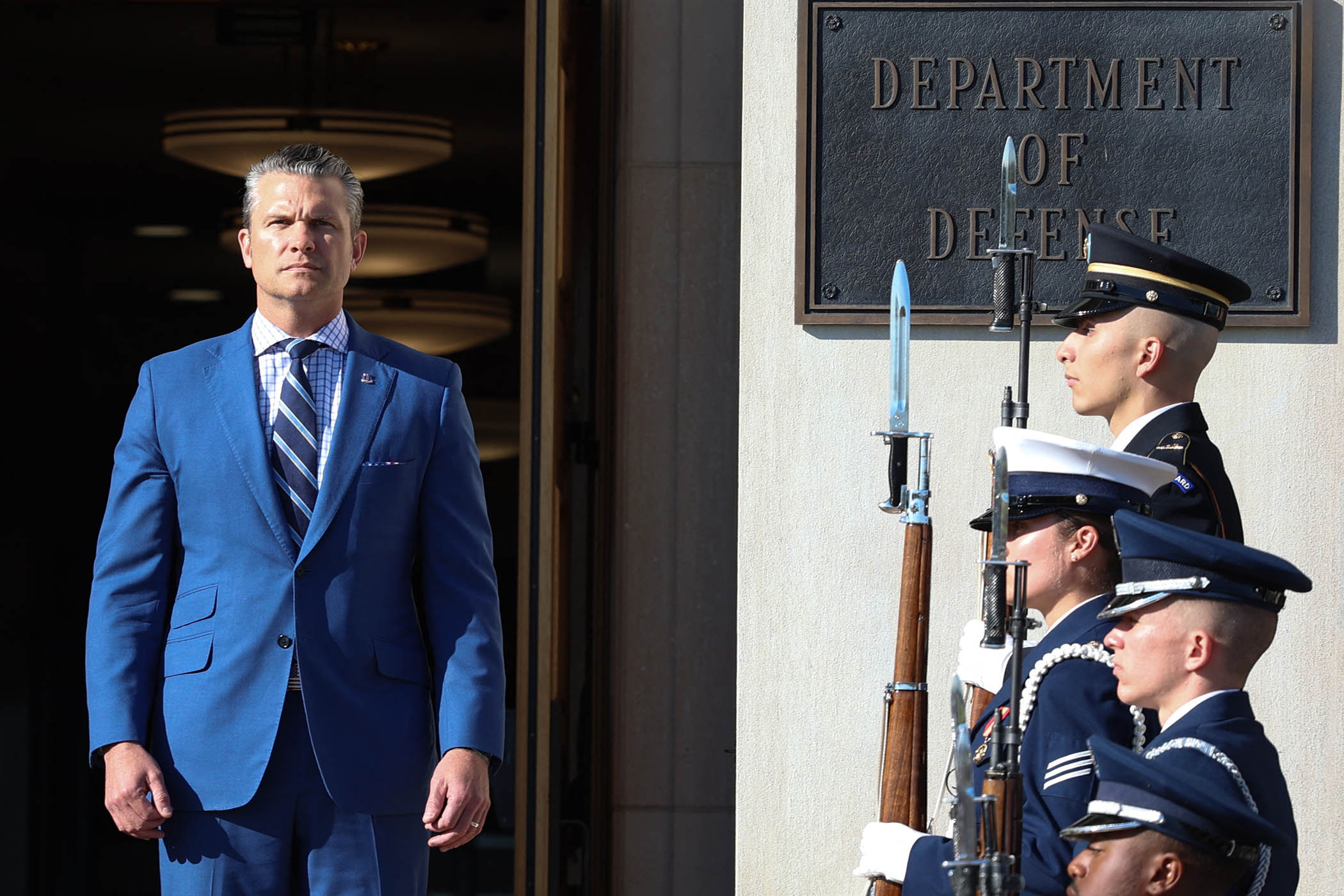Hundreds of National Guard troops from Illinois and Texas have arrived in the Chicago area, the latest mobilisation of the US military to a Democrat city ordered by Donald Trump.
So what? National Guard units have already been sent to Los Angeles and Washington DC and are heading to Memphis. The deployments are an unprecedented use of the military on American soil. Trump says they are needed to curb crime and enforce his deportation programme. But they increasingly resemble an authoritarian power grab that risks
•
undermining the political neutrality of the US military;
•
eroding trust between communities and law enforcement authorities; and
•
provoking clashes between protestors and troops trained for war, not to police unrest.
Legal battle. On Sunday a federal judge temporarily stopped a National Guard mobilisation to Portland, Oregon, saying it was “well outside of the norms or practices of any president in recent history”. The state of Illinois filed a similar lawsuit on Monday to block the Chicago deployment, but a district judge declined to halt it while the suit is pending.
Rearguard action. Chicago mayor Brandon Johnson has signed three executive orders to limit the power of federal agents in his city, including one banning immigration agents from operating on city-owned property after they reportedly used school car parks as staging grounds.
War of words. Illinois governor JB Pritzker says Trump’s interventions are an “illegal effort to militarise our nation’s cities” and represent “an unconstitutional invasion.” Yesterday Trump threatened to arrest him and Johnson for “failing to protect” immigration enforcement officers.
Sit rep. A National Guard spokesman said troops have now started protecting federal property in the Chicago area. Hundreds of protesters took to the city’s streets in condemnation.
Dubious claims. Trump claims Portland is “war-ravaged” and that Washington DC is a hotbed of “bedlam and squalor”, and has called Chicago the “most dangerous city in the world”. He says troops are needed in Chicago to protect an immigration facility against protests, after federal agents pepper-sprayed and teargassed demonstrators trying to block vehicles there.
Reality check. Trump’s narrative that Democratic areas are especially crime-ridden is false. Earlier this year, a Harvard-led study found little difference in the crime rates of areas held by Democrats and Republicans. It examined data from 400 cities over nearly three decades.
Elsewhere. The mobilisations reflect how Trump has weaponised other state organs in pursuit of his political opponents. His justice department has indicted former FBI director James Comey, who investigated Trump’s ties to Russia, and is looking into the finances of New York attorney general Letitia James and California senator Adam Schiff, both Democrats.
Some history. There are National Guard units in every US state. Domestically, they are usually used to provide humanitarian assistance, not enforce the president’s agenda. Until this year, the last time a president bypassed a state governor to deploy the National Guard was 1965, when Lyndon B Johnson sent troops to protect civil rights campaigners on the famous Selma march.
Newsletters
Choose the newsletters you want to receive
View more
For information about how The Observer protects your data, read our Privacy Policy
Legal questions. The US military traditionally sits above party politics, and there are strict rules governing deployments on American soil. This includes the 1878 Posse Comitatus Act, which bans the use of soldiers to enforce the law.
Loophole. Trump has proposed using the 1807 Insurrection Act if courts, governors or mayors “were holding us up.” This legislation allows the military to put down a “rebellion.” Invoking it would be a major escalation and put the president on even shakier legal ground.
Precedents. Trump has already resorted to arcane laws to pursue his policy goals. This includes invoking the Alien Enemies Act of 1798 to deport alleged gang members to Venezuela and using the 1977 International Emergency Economic Powers Act to justify his tariffs.
What’s more… The legal wrangles over the deployments could end up before the Supreme Court. So far, its mostly conservative bench has erred in favour of Trump’s efforts to expand his powers, although it did block his use of the Alien Enemies Act.



